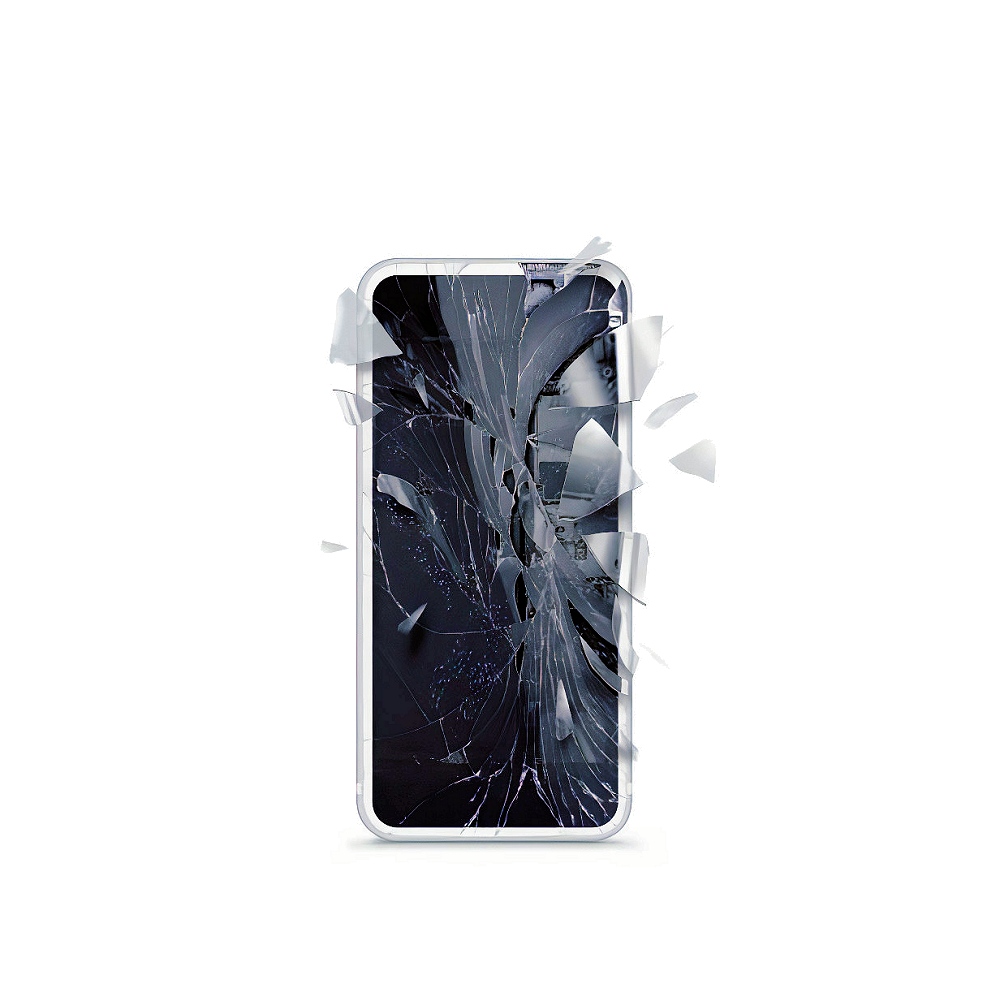I could understand upgrading so frequently at the advent of mainstream smartphones, where two years of progress actually did represent a significant user experience improvement - but the intergenerational improvements for most people’s day-to-day use have been marginal for quite some time now.
Once you’ve got web browsers and website-equivalent mobile apps performing well, software keyboards which keep up with your typing, high-definition video playback working without dropped frames, graphics processing sufficient to render whatever your game of choice is for the train journey to work, batteries which last a day of moderate to intense use, and screen resolutions so high that you can’t differentiate the pixels even by pressing your eyeball to the glass - that covers most people’s media consumption for the form factor, and there’s not much else to offer after that.
If the batteries were easily replaceable, and the software didn’t continually get bloated, and companies kept issuing security patches, sure.
I kept my last desktop system for 10 years. Actually I still have it and it performs sort of ok (I was running Mint the whole time). But I upgraded and the performance improvement was actually worth the considerable cost. I’ve gotten similar life out of my other desktops and laptops over the years.
I think at least 5 years or preferably 10 is reasonable for smart phones.
This! and the £1200 price tag.
Smartphone CEOs dumbfounded when no one wants to buy their $1999 xPhone 25 Pro Max XXL Z-Flip 4d-folding hextuple AI 8k camera with Bionic 10Ghz chip including real neurons
Which is ironically the same as the $1999 xPhone 24 Pro Max XXL Z-Flip 4d-folding hextuple AI 8k camera with Bionic 10Ghz chip including real neurons from last year.
Nah, the 25 has a stylus. The 24 didn’t. The 26 won’t either.
You’ll have to get the 26+ PRO ULTRA for $2699 if you want the stylus back.
The 27 will come in an exclusive shade of grey! Instead of last year’s exclusive shade of dark grey. Rumor has it they might even try a grey-green in 2030.
Unless you’re doing very specialist stuff, phone tech peaked a while back for the average user who’s only going to do some web browsing, social media, listen to some tunes or watchbsome funny videos. All the little incremental changes aren’t groundbreaking for that use case.
Until foldables are both reliable and cheaper, phones have stagnated in terms of visably appealing features.
Not sure I agree that phone tech has peaked a couple years ago for the average user. What technology peaked years ago?
Camera? Efficient processors? Display panels? Biometrics? Batteries? Cellular/Wi-Fi modems? Emergency satellite connectivity? I cannot think of a single technology (I am on iPhone 14 Pro) that is not at least marginally better than a year or two ago, and pretty meaningful improvement from ~5 years ago.
The rate of technological improvement has slowed or plateaued, but there is a pretty reasonable argument that current flagship technologies are the “peak”, even for average user, if only incrementally. I agree that this plateau, coupled with upgrade cost, is making it a harder choice to decide to upgrade for average user.
Cameras are mostly software improvements these days. I argue displays have gotten worse with the drop from QHD to 1080p. Many think that the back fingerprint readers are better than the under screen or facial ones. 5G is mostly pointless. All while costs have increased greatly. A phone today doesn’t better meet my use cases than the phone I had 6 years ago and in many ways is worse (lower res screen, no headphone jack, inflated prices).
Many think that the back fingerprint readers are better than the under screen or facial ones
They are. I could have my phone unlocked before even seeing the screen with the one on the back. The under screen one sometimes takes a couple tries and takes longer when it works. It’s cool tech, but the stand alone reader was better.
If anything if you just go with “got good enough for the average user years ago”, that works.
I’m on a cat s62 pro with a 5 year old Snapdragon 660, and, while it shows its age, it functions just fine and will for the next few years.
Agreed, but that is not what OP said.
You’re on apple, they certainly haven’t had a user noticeable change for the last 6 years.
For me on android the last “must have” was variable refresh up to 120hz. I’ll probably even do a battery upgrade on my s21 when it can’t last a full day rather than hit an s25.
The only blocker I’ve hit with is yuzu on android, which kind of just doesn’t work at all still.
Okay. Trying picking up a iPhone X (releases Sep 2017) vs iPhone 14 Pro and see the difference. There are a lot of quality of life improvements that make a noticeable difference in user experience.
- 120hz
- better battery life
- 2x as fast charge
- much brighter screen, always on if that interests you
- triple camera sensors, with wide lens vs double, no wide lens
- LiDAR to improve portrait photos
- faster Face ID (used 100s of times a day)
- satellite communication for emergencies
- MagSafe charging/docking ability
- 5G (really only find it useful for hotspots)
I can confidently say everyone of these features has improved my user experience. None of them by their self are earth shattering, but taken as a whole, the constant iterative improvements have amounted to quite a lot.
Still using an iPhone X and the only things in your list that interest me are faster charging and LiDAR. But nothing to do with portraits; I want it for 3D scanning objects for CAD models for 3D printing. But I’d use it maybe a few times a year.
As someone who just had an Galaxy S7 or something for 6.5 years this all sounds way overkill. I’d probably disable everything possible to get even more battery life out of it.
If someone uses this phone for gaming or working or for documenting/photographing a trip or something, then its maybe worth it but for everyday use its just overkill imo
Not surprising. I used to update every 2 years but my last couple have had a 3 or 4 year gap.
As it should be really. These can be very expensive devices that only make sense if you get a decent life out of them.
I just don’t see the point of upgrading every two years, and even if I did I’m buying used at this point.
I’m on iPhone and despite all the fanatics creaming their pants over each release, very little actually seems to change.
I know a guy with a 6 year old phone, and when he listed off the features it made me realise how little things have actually changed since it was released.
Reading this on iPhone X
deleted by creator
Yeah, marginal camera improvements are kinda meh to me. Has there really been anything that significant since Face ID?
5G is the only thing that springs to mind for me, but I’ve honestly never felt that 4G held me back on a phone considering it works perfectly for playing videos…
Next iPhone gets usb c.
That’s great, but considering everyone’s already got the cables they need, for most people it’s not really a feature to upgrade for.
Most people have 1 cable they need for their phone and a lot of usb c. Upgrading means no more going to find that 1 unique charger.
Absolutely not. I don’t have a laptop, have a family group that have between us, iPhone X, XS, 11 and an old 7max. All chargers I have owned for the last 10 years are USB A at the charger. So the cable will be USB A to lightning for all the phones and to something else, like micro usb for other devices like a rechargeable bike light. USB C is just to cause e-waste and of no practical use.
Yeah, it’s nice, I just don’t think that feature is worth upgrading for most people.
Face ID and Apple Pay were jumps forward in the way that people use their phones and were quite exciting, introducing USB C is just backtracking.
When smartphones first took off, each new one was a large upgrade. But each passing year sees new phones being more and more iterative. There’s hardly any difference at all anymore between individual years.
I’m at the point now where I keep my phones until they break or stop getting security updates.
I don’t see any reason in 2023 to replace my iPhone 12
I’ve started to upgrade when iOS updates stop. As the cost of devices goes up, I just keep them longer so the cost per year is about the same.
I haven’t had an iOS device in ages, but Apple does seem to offer pretty decent support timespans for their phone hardware. Looks like it’s 6-7 years of support after the release date, which is respectable compared to the rest of the industry.
On the Android side, my phone stopped getting updates after 4 years, which feels too short to me. Not having access to Android 12+ wasn’t causing me any problems but I didn’t want to wait for some future bug, limitation or security flaw to emerge. I switched to LineageOS (just last night actually) to keep it going for another few years.
Had mine since October 2017. Huawei Honor 9. Getting a bit shit now, random power offs below 25%, slow as balls, the usual.
A lot of that is likely just web bloat and inevitable battery death.
So what are the better mid-range phones these days? I’d rather have as little non-uninstallable crapware as possible.
Pixel “a” Phones are basically the continuation of the (formerly midrange) Nexus. Though Fairphone is entering the US market, they look like they’d be a solid choice.
Well the networks will try to tie people in for 36/48 months so… they kind of asked for it.
I’ve been sin only for a while, didn’t realise it had jumped up from the average 24 months in the UK now.
That is going to be a problem for apple, better make the next iPhone’s battery be unreplaceable and self destruct after 2 years.
I’ve been using iPhones since iPhone 4. So far I’ve had the iphone4, iPhone 7+ and iPhone 13max.
All my phones have been replaced upon end of updates. I think you mix android and iPhone here - I know nobody under 70 that manage to keep an android over 2 yearsAnd pretty much everyone in my family has used our android phones for 4+ years for as long as I can remember.
It’s almost as if anecdotes are worthless!
As far as I know, until recently no android phone manufacturer except Google provided updates to their phones past 1-2 years. So while it’s been possible, I have never recommended keeping an android phone past 2 years.
See https://www.androidauthority.com/phone-update-policies-1658633/ for some background info if you think it’s just anecdotes
Oh sorry, this wasn’t an iOS-vs-Android dig, all the android manufacturers are constantly near bankruptcy, but apple has shareholders who are expecting growth, they will be hurt the most by consumers holding their on to their phones longer. (Samsung is reporting over 90% profit shrinkage, the Chinese brands are probably just PLA plants to capture as much communication as possible worldwide without a profit motive to begin with)
I’m agnostic when it comes to technology. The choice of iPhone vs Android both at my previous and current workplace has been and is based on what they provide. Currently we are iPhone, Samsung and Fairphone only - previously iPhone only.
When it comes to age of iPhones (in US) I see the same pattern as in my current org. https://9to5mac.com/wp-content/uploads/sites/6/2023/05/how-long-users-keep-iphone.png













